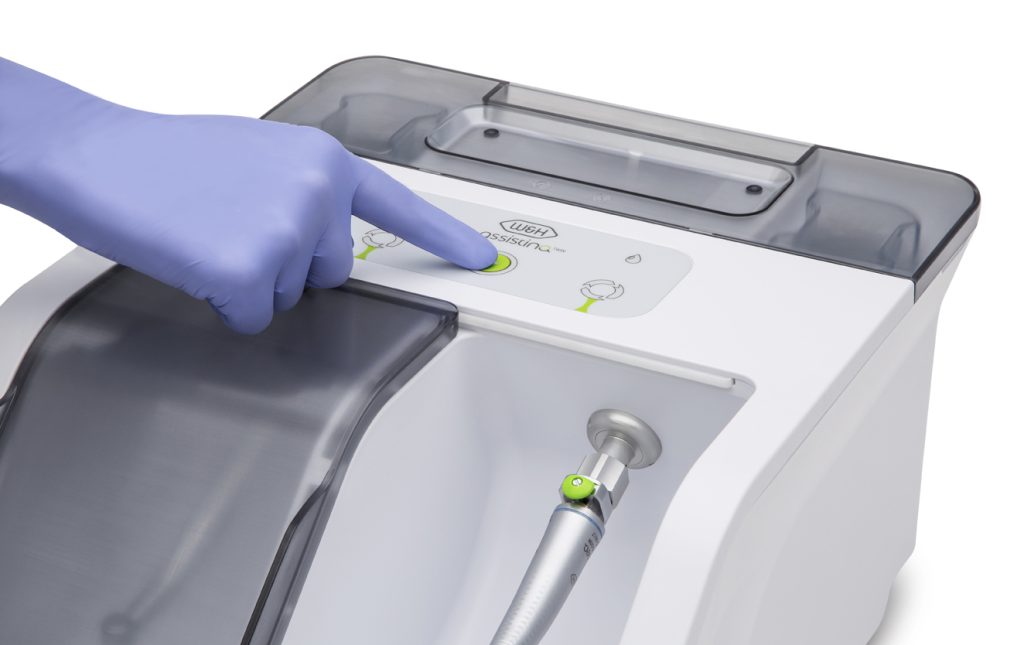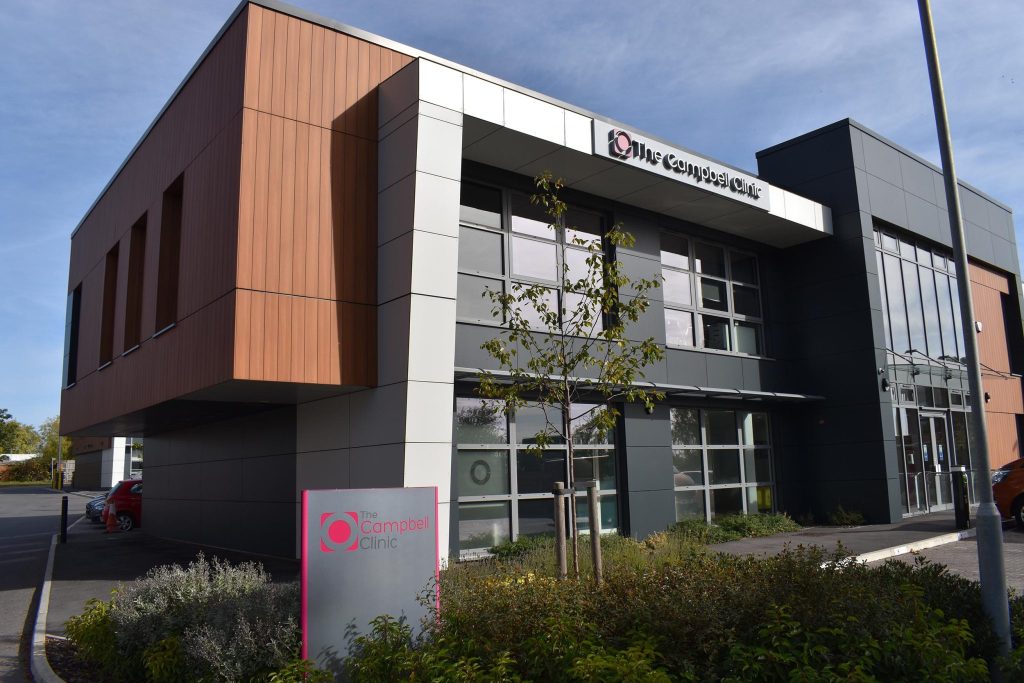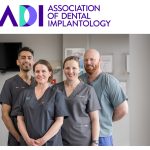When you invest in high quality handpieces, it’s important to do all you can to extend their lives, ensuring you are making the most out of your purchase. This means using handpieces exactly as instructed, and making sure that they are lubricated and maintained as recommended. Research suggests that dental handpieces fail due to a number of factors. These include damage from regular autoclaving, corrosion due to inadequate lubrication, and the improper use/abuse of the handpiece.[i]
The effect of sterilisation on the life of a handpiece
In day-to-day practice, dental handpieces are used very regularly,[ii] meaning that they are required to be sterilised several times during the day.[iii] Over time, this can impact their longevity, causing corrosion to their internal elements, potentially resulting in malfunction. Even though this corrosion can reduce the lifespan of handpieces, autoclaving is a requirement for dental practices. Of course, clinicians should not prioritise the life span of their handpieces over the safety and care of their patients – effective sterilisation should always be carried out. So, we must consider the best possible ways to reduce this impact, and maximise the life of dental handpieces.[iv]
Because of this, it is important to carry out maintenance exactly as instructed by the manufacturer.[v] During autoclaving, water vapour which accesses the internal elements of the handpiece may cause corrosion, if proper protection is not present through adequate lubrication.[vi] By implementing these measures, any corrosion caused during the disinfection process should be minimal.[vii]
The importance of lubrication for extended life
A study compared the differences in levels of corrosion between unlubricated and lubricated handpieces after 25, 50, and 100 sterilisation cycles. In all sterilisation types trialled, lubrication proved to adequately protect handpieces from corrosion, showing signs of superficial oxidation only, with unlubricated handpieces displaying corrosion after just 25 cycles in some cases.[viii]
Repeated high stress can also contribute to the wear and tear of your handpieces. This could potentially lead to uneven surfaces and cracks, which can in turn cause corrosion. Be sure to not apply excessive pressure during treatments to avoid unnecessary stress on your handpiece. Following the recommended guidelines from the manufacturer is essential, as extensive damage can lead to the failure of the handpiece. Good maintenance can also help to prolong the life of these tools, as lubrication can prevent severe wear.[ix]
 Thorough decontamination and maintenance
Thorough decontamination and maintenance
Decontamination and equipment maintenance are an essential part of the smooth running of any dental practice, so finding the most effective way of carrying out these processes is crucial for maximising the life of a handpiece. In a busy practice, the routine of cleaning, lubricating, and sterilising dental handpieces between every patient may be challenging, but it is vital that you do not overlook the important maintenance step. This will allow you to protect your investment, and ensure that your handpieces are working at maximum efficiency.[x] It is also vital that thorough reprocessing is undertaken between patients to ensure that decontamination and sterilisation are carried out properly, for the safety of your patients and dental staff. Because reprocessing can often require a fast turnaround, particularly in a busy practice, it is important to have the equipment available to facilitate this.
The Assistina Twin and Assistina One lubrication and maintenance devices from W&H are innovative systems designed to effectively maintain your handpieces. The Twin’s duo-chamber system allows for lubrication in record time. Because you can set up one handpiece while another is being maintained, you can process instruments far more quickly – reducing the procedure to as little as 10 seconds per handpiece. The Assistinas have been further enhanced by the innovative Quick Connect adaptor solution from W&H – it’s easy to use and facilitates quicker adapter changes because different adapters can be prepared outside of the device before and during the process. It also features an ergonomic design for efficient and effective workflows, enhancing your everyday practice tasks.
It is essential to reprocess handpieces efficiently, for a smooth-running dental practice. This means making sure that they are cleaned, maintained, and sterilised ready for the next patient. By investing in equipment which allows you to carry out maintenance quickly, you ensure that reprocessing is prompt, meaning that you never have to miss a step, or keep your patients waiting. Regular lubrication, as recommended by the manufacturer, will allow you to prolong the life of your handpieces, protecting them from wear and tear acquired through regular use and sterilisation.

To find out more visit www.wh.com/en_uk, call 01727 874990 or email office.uk@wh.com
[i] Wei, M., J. E. Dyson, and B. W. Darvell. “Failure analysis of the ball bearings of dental air turbine handpieces.” Australian Dental Journal 58.4 (2013): 514-521. https://onlinelibrary.wiley.com/doi/pdf/10.1111/adj.12112
[ii] Smith, G. W. G., et al. “Survey of the decontamination and maintenance of dental handpieces in general dental practice.” British Dental Journal 207.4 (2009): E7-E7. https://www.nature.com/articles/sj.bdj.2009.761
[iii] Angelini, Emma. “Influence of sterilization on the corrosion resistance of high-speed dental handpieces.” Quintessence International 23.3 (1992). http://www.quintpub.com/userhome/qi/qi_23_3_angelini_11.pdf
[iv] Wei, M., J. E. Dyson, and B. W. Darvell. “Failure analysis of the ball bearings of dental air turbine handpieces.” Australian Dental Journal 58.4 (2013): 514-521. https://onlinelibrary.wiley.com/doi/pdf/10.1111/adj.12112
[v] Wei, M., J. E. Dyson, and B. W. Darvell. “Failure analysis of the ball bearings of dental air turbine handpieces.” Australian Dental Journal 58.4 (2013): 514-521. https://onlinelibrary.wiley.com/doi/pdf/10.1111/adj.12112
[vi] Wei, M., J. E. Dyson, and B. W. Darvell. “Failure analysis of the ball bearings of dental air turbine handpieces.” Australian Dental Journal 58.4 (2013): 514-521. https://onlinelibrary.wiley.com/doi/pdf/10.1111/adj.12112
[vii] Wei, M., J. E. Dyson, and B. W. Darvell. “Failure analysis of the ball bearings of dental air turbine handpieces.” Australian Dental Journal 58.4 (2013): 514-521. https://onlinelibrary.wiley.com/doi/pdf/10.1111/adj.12112
[viii] Angelini, Emma. “Influence of sterilization on the corrosion resistance of high-speed dental handpieces.” Quintessence International 23.3 (1992). http://www.quintpub.com/userhome/qi/qi_23_3_angelini_11.pdf
[ix] Wei, M., J. E. Dyson, and B. W. Darvell. “Failure analysis of the ball bearings of dental air turbine handpieces.” Australian Dental Journal 58.4 (2013): 514-521. https://onlinelibrary.wiley.com/doi/pdf/10.1111/adj.12112
[x] Smith, G. W. G., et al. “Survey of the decontamination and maintenance of dental handpieces in general dental practice.” British Dental Journal 207.4 (2009): E7-E7. https://www.nature.com/articles/sj.bdj.2009.761











 Thorough decontamination and maintenance
Thorough decontamination and maintenance 







